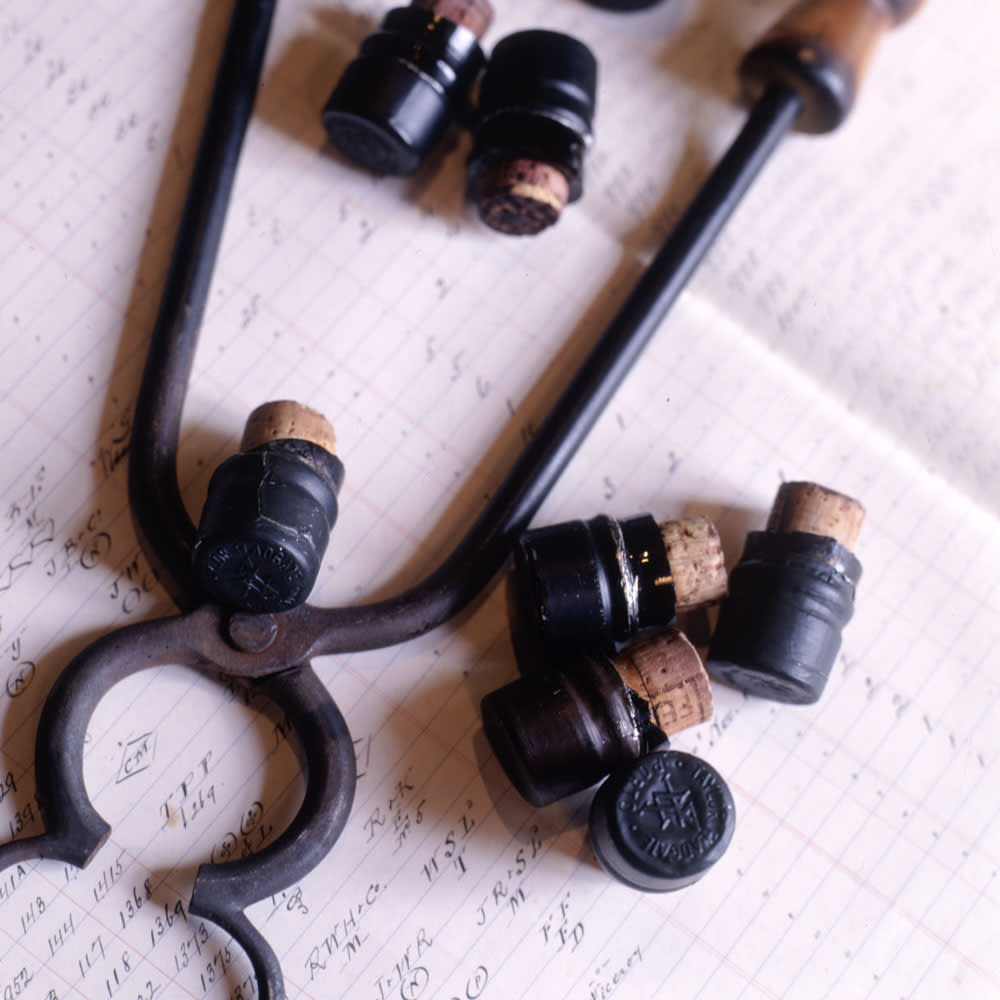Tonging Is the New Sabering

For years, I felt that sabering Champagne was the sexiest way to open a bottle—shooting the top off (glass, cork, and all) in a long arc with a satisfying pop. And, if your friends are anything like mine, it’s all done to the sound of shouts and applause. Add in its historical origins—can’t you just imagine Napoleonic soldiers slicing open Champagne bottles with their trusty sabers?—and it doesn’t get better.
At least, that’s what I thought until visiting the cellars of Taylor’s, one of the most venerable port houses in Porto and discovering an equally fascinating alternative: Tonging.
Okay, the name doesn’t roll off the tongue in the same way. But “tonging” involves historical implements, fire, and breaking glass with heat. What’s not to love?
Unlike many other wines, vintage ports are intended to age for decades; twenty years, fifty, sometimes longer. Over that length of time, the cork can start to disintegrate, such that it could crumble if met with a corkscrew. And when you’ve been waiting half a century to crack open a bottle, the last thing you want is crumbs of cork getting in the way. The alternative? Precisely sever the neck of the glass bottle itself.
Here’s how it works. You’ll need a pair of custom iron "port tongs," designed to fit precisely around the neck of the bottle. Torch them ‘til they’re red-hot —over an open flame or, if you’re trying this at home today, perhaps a blowtorch. Clamp around the neck to heat the glass, rotating to make sure it’s heated all the way around; then remove and gently treat with cold water. The change in temperature will break the glass clean through, exactly where the tongs heated the bottle. Presto: It’s open. (Now with extremely sharp edges. Applying hot wax to that cut surface ensures no one slices open a finger.)
Of course, any glass bottle can be opened with tongs, although cracking open your everyday plonk this way might be overkill. Better to save it for your sublime Taylor’s 1963 Vintage Port. (Although if you’re brave enough to try this at home, that once-in-a-lifetime vintage probably shouldn’t be your practice bottle.)